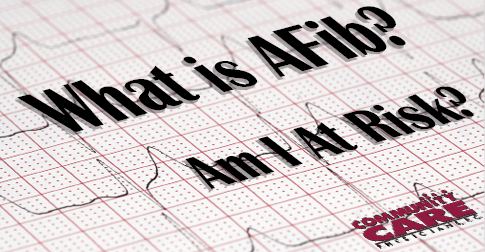
Atrial fibrillation (AFib) is an irregular and often rapid heart rate that commonly causes poor blood flow to the body. During AFib, the heart's two upper chambers beat irregularly, out of coordination with the two lower chambers.
What Are the Symptoms of AFib?
Symptoms of AFib often include:
- Heart palpitations
- Shortness of breath
- Weakness
- Fatigue
- Lightheadedness
- Confusion
- Dizziness
- Chest pain
Episodes of AFib can come and go, or you can develop AFib that never goes away, requiring possible treatment.
Is AFib Life-Threatening?
Usually, AFib is not life-threatening, but it is a serious medical condition that should be addressed. AFib can lead to various complications such as blood clots forming in the heart that could lead to blocked blood flow.
What Are the Causes of AFib?
Atrial fibrillation may be caused by abnormalities or damage to the heart. Possible causes of AFib include:
- High blood pressure
- Heart attacks
- Coronary artery disease
- Abnormal heart valves
- Heart defects you are born with
- Tobacco and alcohol use
- Lung diseases
- Previous heart surgery
- Stress due to pneumonia, surgery or other illnesses
- Sleep apnea
It is possible to develop AFib without having any previous heart issues or damage. This condition is called lone atrial fibrillation. Serious complications are rare in cases of lone AFib.
What Are the Risk Factors of Atrial Fibrillation?
Certain risk factors may increase a person's chance of developing AFib. These include:
- Age: The older you are, the greater your risk of developing AFib.
- Heart Disease: If you have heart disease, you have an increased risk of developing AFib.
- Alcohol Consumption: If you consume large quantities of alcohol, you may be at higher risk of developing AFib.
- Obesity
- Family History
In some cases, AFib can lead to a stroke or heart failure. That is why discussing your risk levels with your doctor and getting educated about AFib is extremely important.
Find a Community Care Physicians doctor today if you are concerned about AFib.
